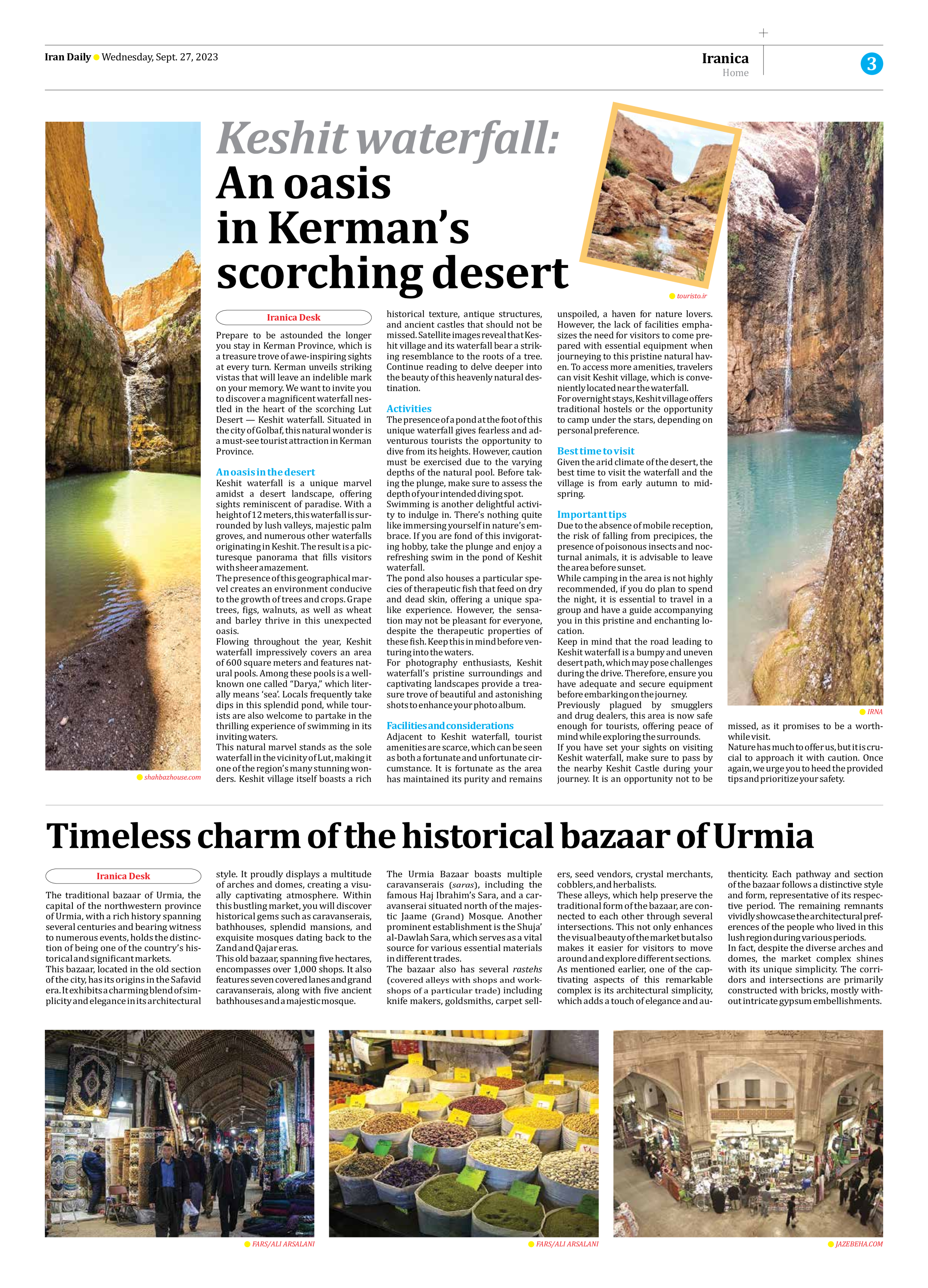
Timeless charm of the historical bazaar of Urmia
The traditional bazaar of Urmia, the capital of the northwestern province of Urmia, with a rich history spanning several centuries and bearing witness to numerous events, holds the distinction of being one of the country’s historical and significant markets.
This bazaar, located in the old section of the city, has its origins in the Safavid era. It exhibits a charming blend of simplicity and elegance in its architectural style. It proudly displays a multitude of arches and domes, creating a visually captivating atmosphere. Within this bustling market, you will discover historical gems such as caravanserais, bathhouses, splendid mansions, and exquisite mosques dating back to the Zand and Qajar eras.
This old bazaar, spanning five hectares, encompasses over 1,000 shops. It also features seven covered lanes and grand caravanserais, along with five ancient bathhouses and a majestic mosque.
The Urmia Bazaar boasts multiple caravanserais (saras), including the famous Haj Ibrahim’s Sara, and a caravanserai situated north of the majestic Jaame (Grand) Mosque. Another prominent establishment is the Shuja’ al-Dawlah Sara, which serves as a vital source for various essential materials in different trades.
The bazaar also has several rastehs (covered alleys with shops and workshops of a particular trade) including knife makers, goldsmiths, carpet sellers, seed vendors, crystal merchants, cobblers, and herbalists.
These alleys, which help preserve the traditional form of the bazaar, are connected to each other through several intersections. This not only enhances the visual beauty of the market but also makes it easier for visitors to move around and explore different sections.
As mentioned earlier, one of the captivating aspects of this remarkable complex is its architectural simplicity, which adds a touch of elegance and authenticity. Each pathway and section of the bazaar follows a distinctive style and form, representative of its respective period. The remaining remnants vividly showcase the architectural preferences of the people who lived in this lush region during various periods.
In fact, despite the diverse arches and domes, the market complex shines with its unique simplicity. The corridors and intersections are primarily constructed with bricks, mostly without intricate gypsum embellishments.







